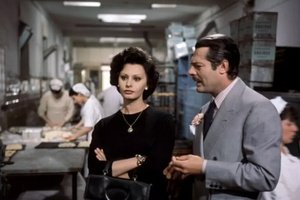Di Natale’s story is “a little different from the typical Italian narrative of prior generations”.
His parents left Vizzini, in the province of Messina (Sicily), together with thousands of fellow citizens during the first wave of migration.
They settled in Australia, but never lost hope of one day returning to the Bel Paese.
In the 1970s, the family suddenly decided to return to Sicily and bought a house in Floridia, with “a large garden bursting with orange and lemon trees”.
Though reunited with their beloved country of origin, Di Natale remembers his parents speaking of Australia incessantly, listing the endless opportunities the nation seemed to offer.
When he was 18 years old, Di Natale used his savings to make the trip to Victoria, joining his uncles in Werribee.
“I was doing odd jobs in Italy and making 18,000 lire a week,” he says.
“I noticed an extraordinary difference when I started working in a milk bar in Laverton.
“The salary was 180 dollars a week and enabled me to relearn English, which I had forgotten during my time in Italy.
“I began to assimilate into the community but the late-night shifts were very tiring, and after the wedding, I began to think I might do something else.”
Di Natale began attending night school to obtain his VCE school certificate while simultaneously working in a department store, similar to Bunnings.
Shortly after, he attained a degree in Italian.
“The desire to teach my mother tongue has always been on a par with my desire to improve my English,” he says.
In 1989, when he was 29 years old, Di Natale began teaching Italian at St Leo’s in Box Hill, then at St Mary’s.
In 1995, he secured a job at Marcellin College, a Catholic boy’s school.
Given the large Italo-Australian community, the study of Italian was a priority in many schools across Victoria.
“When I talked to the students, I discovered that they still made passata, pickles and salami at home,” Di Natale explains.
“They still placed great value on their bond with their country of origin and had immense respect for its traditions and customs.
“Even today I like to tell young people that by learning a language, you learn the culture of a country: it’s a bilateral connection.
“Unfortunately, Italian isn’t as prevalent a language in Australia as it once was.
“This is due in part to relations between the Italian and Australian governments – there aren’t as many language exchange opportunities as there used to be.
“Interest in Italian is waning and resources are being poured into the teaching of Asian languages instead.”
Fortunately, Di Natale still teaches multiple Italian classes that consist of about 20 students each.
“It’s quite a good number of students, compared with other schools,” he says.
In his lessons, he covers dynamic and modern themes to attract his students, reading from the pages of Il Globo, discussing music, fashion and the environment.
He also introduces his students to relevant literature: this year his students will explore Marcovaldo by Italo Calvino.
“There’s always been a problem here in Australia in relation to the importance given to the study of languages,” Di Natale explains.
“We must constantly strive to generate interest in all students – not just second- or third-generation Italians.
“This is the challenge that faces Italian language education in the future.”












